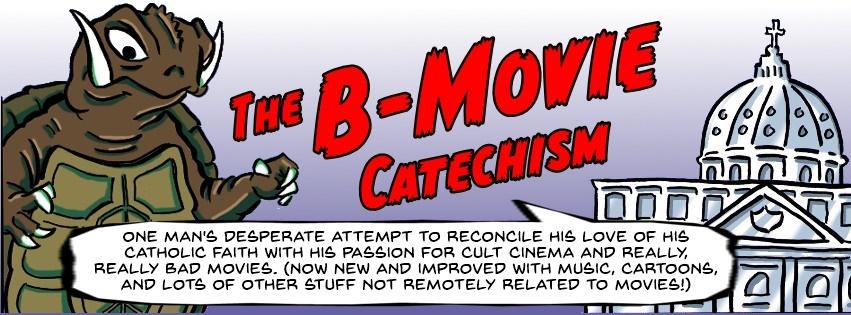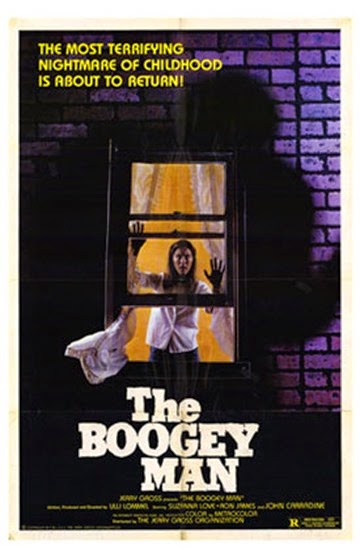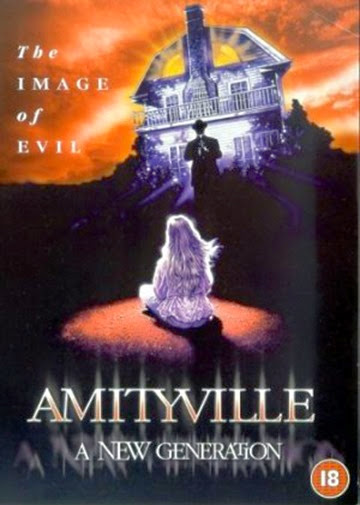Had I stuck with the program, I would obviously had reviewed Rio 2 for Aleteia this week since it’s the new release that’s going to make all the big bucks. But, I just couldn’t do it. Instead, I went for something a little more suited to this blog for a change, Oculus. As you may have gathered from the commercials, this is the movie in which Amy Pond and Starbuck fight a mirror. Okay, that’s not fair. Oculus may not be quite the classic it could have been if just a few more scares and a little bit more thought had been put into it, but it’s actually pretty good, even considering the well worn premise.
Still, because the idea of a haunted mirror has pretty much been done to death, nobody could really be blamed for deciding to wait until Oculus makes its way to the small screen before watching it. If you’re among those in no rush to see this latest trip through a ghost filled looking glass, here are some older flicks with creepy mirrors to keep you busy until Oculus pops up on cable.
Dead of Night (1945)
In which a mirror shows a man the tragedy that will occur if he gives in to jealousy. I’m not sure if this venerable old anthology represents the first movie in which a haunted mirror shows up to cause trouble, but it’s definitely one of the most fondly remembered. Now, that’s probably due to the segment with the ultra creepy ventriloquist’s dummy more than it is the one with the mirror, but Dead of Night is still definitely worth checking out if you enjoy the classics.
The Boogey Man (1980)
In which a mirror holds the soul of a deceased slasher. If pressed, most folks would say The Boogey Man is director Ulli Lommel’s best effort. Of course, that’s pretty much like saying which tooth you prefer to have yanked out with no anesthetic, so I wouldn’t put too much stock in that.
From Beyond the Grave (1974)
In which a mirror houses the hungry souls of its victims. Like Dead of Night before it, the mirror segment isn’t really the highlight of this portmanteau, but it’s an Amicus feature starring Peter Cushing, so even the weaker stories are still fun.
Amityville: A New Generation (1993)
In which a mirror taken from the infamous Amityville house brings doom and destruction to its new owners. This is the seventh movie in the Amityville series. Do you really have to ask if its any good?
Mirror Mirror (1990)
In which a mirror containing a demon helps a bullied Goth girl take vengeance on the cool kids at school. Mostly remembered because its star, Rainbow Harvest, was pretty much channeling Winona Ryder from Beetlejuice, Mirror, Mirror was actually popular enough to warrant three sequels. Not saying any of them were watchable, but they did get made.
It makes you wonder just what it is about mirrors that makes Hollywood keep going back to that well. Well, according to mirrorhistory.com (don’t you just love micro-niche websites), there have been a number of superstitions revolving around mirrors over the centuries, including:
- The idea that breaking a mirror brings seven years bad luck likely evolved from the days when people used water as a mirror. Some ancients believed they were seeing their soul, so if the watery image was distorted, they were fated to die. After the invention of physical mirrors, many cultures believed they too reflected the soul, so a broken mirror obviously signaled misfortune. Fortunately, some ancient Roman’s believed a soul could renew itself in seven years, so at least the bad luck had a time limit.
- Obviously, since mirrors reflected souls, soulless creatures like vampires could have no reflection.
- In later times, the belief developed that mirrors could actually trap the souls of deceased, so many cultures, including the Jews, started the custom of covering all mirrors in the house after the passing of a loved one.
- Mirrors became so linked to the soul, that even if one fell off a wall by itself when nobody was around, it meant that someone somewhere was going to die.
- Apparently there was so much death surrounding mirrors that If you so much as looked at a mirror by candlelight you might see the spirit of a loved person who had died.
- And because mirrors were obviously portals through which the soul could enter the spiritual dimension, it made sense that other things could be in them as well. Jewish Kabbalistic writings, for instance, insisted that the demoness Lilith could possess women through mirrors.
After a few centuries of that kind of stuff, is it any wonder some people still believe mirrors can be haunted. Just last year, two London roommates listed a mirror on eBay they claimed might be harboring some evil spirit. It sold to the one and only bidder for $155. No word yet on how that purchase worked out.
The Bible doesn’t actually reference any of these superstitions, but given the ancient world’s predilection to associate mirrors with the soul, it’s not too much of a stretch to imagine some of the early readers of the Epistle of James might have had such tales in mind when they read these verses from Chapter 1:
“Be doers of the word and not hearers only, deluding yourselves. For if anyone is a hearer of the word and not a doer, he is like a man who looks at his own face in a mirror. He sees himself, then goes off and promptly forgets what he looked like. But the one who peers into the perfect law of freedom and perseveres, and is not a hearer who forgets but a doer who acts, such a one shall be blessed in what he does.”
Obviously the passage deals with James’ primary theme of the importance of faith AND works, but If we look at these verses as also being about a person contemplating a reflection of their own soul in a mirror, then they can take on a secondary layer of meaning dealing with the knowledge of self. It is only by viewing the soul through the lens of the laws of Jesus that a person’s true face might be seen. And if that focus is lost or quickly forgotten, then self knowledge will fade away with the memory as well.
I don’t know, maybe I’m just stretching the verse a bit to match the theme. But then again, it was Pope St. Gregory who said, “The Holy Bible is like a mirror before our mind’s eye. In it we see our inner face. From the Scriptures we can learn our spiritual deformities and beauties. And there too we discover the progress we are making and how far we are from perfection.” So maybe I’m not too far off after all.






No comments:
Post a Comment